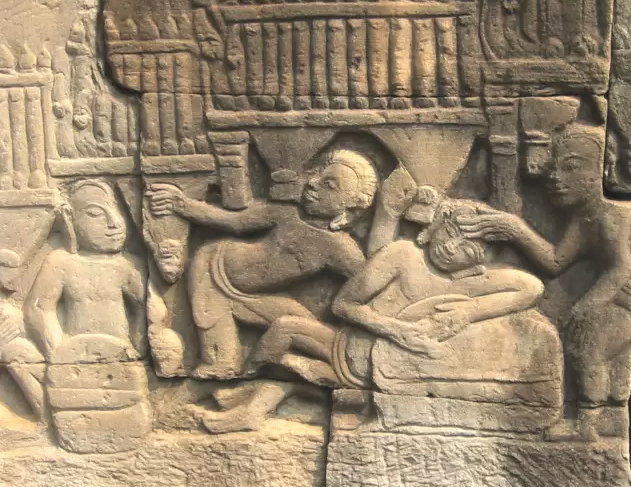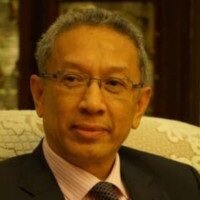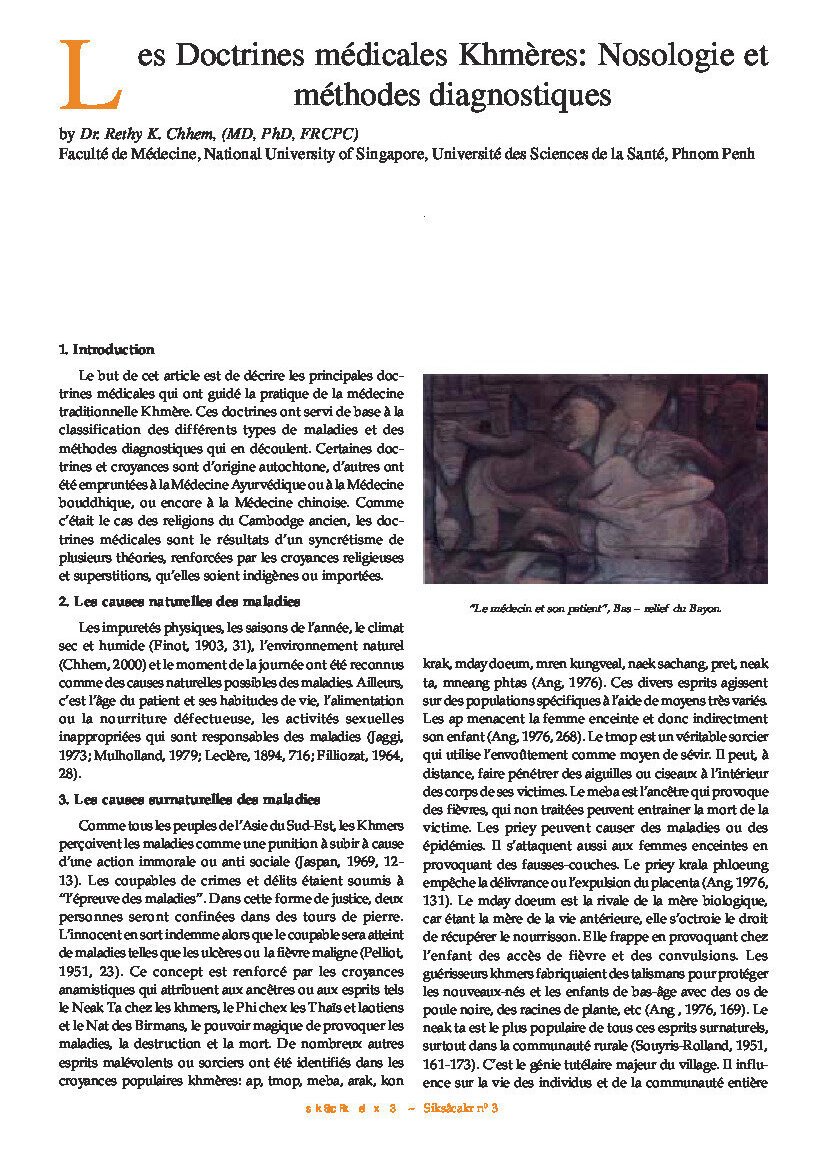Les doctrines médicales khmeres
by Rethy Kieth Chhem

- Publication
- Siksacakr (Center for Khmer Studies Review), n. 3
- Published
- 2001
- Author
- Rethy Kieth Chhem
- Pages
- 4
- Language
- Khmer
pdf 77.3 KB
An excellent summary of Khmer nosology (the branch of medical science dealing with the classification of diseases), and the traditional explanations for diseases, mostly related to evil spirits or spell-casting sorcerers.
The article reviews Khmer medical theories originated from the 12th century, and studies their influence on the classification of diseases as well as the impact of diagnostic methods.
The syncretism of medical theories from India (Ayurvedic and Buddhist) and Chinese medicine with Khmer indigenous medical concepts is clearly summarized.
(Photo: medical workers assisting a patient on a Bayon bas-relief. By Rethy Chhem)
Tags: healthcare, 12th century, medicine, ayurveda, khmer rituals, nosology
About the Author

Rethy Kieth Chhem
Dr Rethy Chhem (1952, Phnom Penh) is a medical doctor, biomedical scientist, science diplomat, historian of medicine and educationalist He has been a professor of radiology for 28 years, teaching in Canada, Singapore, Austria and Japan.
Dr Chhem is the Executive Director of the Cambodia Development Resource Institute (CDRI), a leading think-tank in Cambodia and the ASEAN region. In 2018, he was appointed special Health Advisor to Cambodia Prime Minister Samdech Hun Sen. He is also co-leading the Angkor Medieval Hospitals Archaeological Project.
He was the Chairman of the Medical Imaging Department at Western University (Canada) before joining the International Atomic Energy Agency (IAEA) as Director of the Division of Human Health (2008−2014). He has published more than 100 scientific articles, and edited 17 textbooks on radiology, radiology education, paleoradiology, philosophy of medical imaging and radiation sciences, with two on the Fukushima nuclear accident. He was a distinguished visiting professor at the Atomic Bomb Disease Institute, Nagasaki, Hiroshima and Fukushima Medical University.
Narrowly escaping the Khmer Rouge after his parents and two siblings were killed during the civil war, he graduated in France, then obtained a scholarship at University of California, San Francisco, and moved to McGill University in Canada.
His involvement with Angkorian research started in 2000, when French archaeologist Christophe Pottier asked for his expertise while excavating the site of the 8th-century Prey Khmeng temple in Siem Reap province, and was looking for an expert to do a preliminary study on them. Dr Chhem analyzed the skeletons recovered on that site, performing CT scans on them. This contribution triggered his interest in pre-Angkorian and Angkorian medicine.
After joining the excavation of one of the one of the 102 hospitals that King Jayavarman VII (1181−1218) ordered to be built in the late 12th century, Dr Chhem established the existence of a comprehensive, free state healthcare system within the Khmer Empire.

